Jason Call is running for Congress in Washington State District 2 against a longtime Democratic incumbent who receives support from Boeing and the fossil fuel industry. Boeing is the district’s largest employer.
Paul Jay
Welcome to theAnalysis.news. In a few seconds, I’ll be back with Jason Call, who’s taking on a Democratic incumbent in the 2nd District in Washington State for Congress. It’s an important race, I think. Not only is it a progressive taking on a corporate Democrat, but it’s also a progressive running in a district which is heavily— people who work at Boeing and who depend on Boeing for their livelihoods.
So be back in just a few seconds. Please don’t forget there’s a donate button, subscribe button, and all kinds of buttons.
So, as I said, I think this race, the primary, Jason Call taking on Rick Larsen in the 2nd District of Washington State, is of national significance. The reason is, I think, any time someone makes a serious challenge to an incumbent corporate Democrat, it’s important and one of the important fronts of struggle going on in the United States. I think this is of particular interest because the big employer, perhaps, half of 145,000 global workers for Boeing, so close to 70,000 work in Washington State. Many of them work and live in the 2nd District. So how Jason talks to workers in the aerospace industry about climate change and decreasing the Pentagon budget, I think, is of a lot of importance for progressives running right across the country.
So, Jason Call is a lifelong progressive activist. He’s a former public school math teacher of 18 years from Marysville, Washington. He’s running for the U.S. House in Washington’s 2nd Congressional District, challenging eleven-term corporate-backed Democrat incumbent Rick Larsen in the August 2 top-two primary. Meaning you could have and probably will have, I think, people are expecting two Democrats that actually run against each other in the election in November because that’s the way this primary works. Increasingly, that is the way, at least on the West Coast, primaries are working.
Call is running a campaign championing Medicare for all, a Green New Deal, expanding the Supreme Court, and reining in the troubling influence of corporations in our politics. He’s earned the endorsement of most of the local Democratic Party organizations in the District. Of course, not the National Democratic Party, but the local Democratic Party, including sole endorsements from two of the five counties, District 5 counties. The incumbent, Rick Larsen, sits on the following committees: the House Armed Services Committee, the Foreign Affairs and Transportation and Infrastructure Committees. He’s received many corporate campaign contributions, including from Boeing.
Now, joining us from District 2 in Washington State is Jason Call. Thanks for joining me, Jason.
Jason Call
Very much appreciated, Paul. Happy to be here.
Paul Jay
So you’re out knocking on doors, and you have a team that’s doing it too. Given the number of people that work for Boeing, some of the doors you’re knocking on are people who directly work for Boeing. As the largest employer in Washington State, and I assume that means in your District, a lot of other people indirectly depend on Boeing for their employment. What are you hearing from people who work or depend on the aerospace industry when you’re saying the climate crisis is real, we have to decarbonize, and we have to cut the military budget? So what are you hearing from Boeing workers, and how are you doing with them?
Jason Call
Yeah, so I have friends who work at Boeing. They’re progressive people. They understand what we’re facing with the climate crisis. They certainly understand that we are dumping a trillion dollars plus into the military-industrial complex while things like housing, health care and education take a backseat. Those are people’s real needs. They also understand that I’m a union supporter. Boeing has a strong union. I think they understand; many of them understand, not all of them, of course. I mean, there’s a diversity of opinion on this, but they understand that we’re going to have to make some transitions if we’re going to survive the future. Certainly, it’s going to impact the fossil fuel industry. I mean, I’ve heard from people who work at refineries say you’re going to take away my job. I’m willing to have those conversations because all of the plans for the Green New Deal and the transitions that we need to make are based on ensuring— because I support a federal jobs guarantee at a living wage— are ensuring that people are able to transition into other industries that are going to be more conducive for a livable future.
I mean, this is one of the hard conversations we have to have at this point in time. Are we going to continue with global militarization? Are we going to continue pumping out fossil fuels into our atmosphere when all of the climate science says we have to get off of that right now? Are we going to avoid the investments that we need in local mass transit and in high-speed rail that are going to impact the aviation industry?
This is one of the reasons Rick Larsen doesn’t support the Green New Deal because he’s heavily funded by aviation. Certainly, Boeing is a massive employer in our District. He wants to make sure that he keeps that. He’s Chair of the Aviation Sub-Committee of Transportation, as well as being, as you mentioned, the fourth-ranking Democrat on the House Armed Services Committee. I mean, he’s heavily invested in ensuring the continuance of America’s global military hegemony as well as the supremacy of aviation as a form of air travel. We have to have these hard conversations right now about not what’s happening, not about people’s existence right now, although that’s a huge conversation. Like, how are we going to help people?
The housing market in my District alone is exploding. People are being priced out of their homes. We’ve got these companies like Invitation Homes moving in and buying up homes in residential neighborhoods. The housing market is hitting us hard here. It’s great for some homeowners, and it’s great for landlords. It’s not great for the working class, and that includes people at Boeing. We have to have these tough conversations, not just about what’s happening right now, but about where we’re going to be 20-30 years from now. I think people are showing a willingness to have those conversations.
Paul Jay
So when you have— you assess who’s in your District, what percentage of voters do you think either work at Boeing or who’s living indirectly depends on Boeing? I mean, even if you have a restaurant, you need Boeing workers to come and buy your food.
Jason Call
I would say anywhere from 50 to 70,000 people. I mean, Boeing has a large workforce in Washington State. It’s not all in my District. Although, Boeing’s largest assembly plant for commercial aircraft is in my District. My District’s Boeing relationship is more around the commercial aircraft industry rather than it is the military aircraft industry. Of course, Larsen has deep ties to the military-industrial complex. The workers in my District may not be as impacted as much because they’re not the military wing of what Boeing does.
Paul Jay
Well, when you’re talking about the climate crisis, you also need to include, obviously, that commercial aviation has to be transformed. It’s one of the major sources of carbon emissions. Boeing’s health as a company depends on the military-industrial complex, even if your area is commercial. So what are you hearing from the Boeing workers? I mean, not your progressive friends who work at Boeing, unless you think the majority of people are like them. I kind of doubt it, given who they’ve been voting for. Let me just say, in your District, Larsen got elected, I think, what, in 2000 or something like that. Before that, you had a lot of Republicans. While in the last few elections, he’s kind of dominated; he did previously have some pretty close calls with Republicans.
Jason Call
Only once. In 2010, it was mid-Obama’s term, first term. There was that red wave all across the country where Democrats lost 1,000 seats in Congress and State legislatures. That’s where he came closest to potentially losing his seat. I have to say I’m glad he didn’t because the guy who was running against him was a complete right-wing nut job. Since then, since 2010, he held the seat firmly, two to one. In fact, the Republicans don’t even invest at the national level, sort of the federal level in Congressional District 2, because it is so solidly Democratic.
Now, they do invest in State races because our county and our legislative districts do have that smaller geographical area and do have some seats that would be considered swing. They invest locally at the State level. They just simply don’t invest at the national level because they know they can’t win it.
Paul Jay
Okay, so what are you saying when you run into people who say, look, my job depends on Boeing one way or the other? I hear that it’s mostly commercial aviation, but it doesn’t change the issue that much, given the climate. So what are you hearing from them, and what are you saying to them?
Jason Call
Well, people want to know that they’re going to have job security. I talk to them about job security. That is, the federal jobs guarantee, which is part of the Green New Deal, ensures that people have jobs and a just transition. We don’t want to take anybody out of an industry, or we don’t want to phase out an industry and not have places for that workforce to go. When we’re talking about engineering, design, and manufacturing, these are all jobs that can transition into a new green, climate-friendly transportation industry and energy infrastructure industry. Those are the conversations that we need to have.
Now, I’m not going to sit here and say that we’re not met with some skepticism because when people are pulling in a good paycheck, they have a good union job, and they have good health care through Boeing, they are resistant to that kind of change. The conversation needs to be had nonetheless. Once we are past the primary, which is less than two weeks away right now, and I would say with 99.99% certainty it’s going to be me and Rick down the stretch of November, we’re going to have to be having these conversations a lot. We’re willing to have it.
What we’re talking about here is understanding what the future is. This District, in particular, we are an extremely coastal district. We have more coastline in this District than most other districts in the country. We’re going to be substantially impacted by rising tides. I think people are— it’s tough because the reality is there’s a lot of climate denial out there. We have to hit people with the facts, and we have to talk to them about the security of their jobs moving forward. Not the same job, but we can transition them to a new job that they are suited for, including the training that they may need in order to get up to speed with whatever industry they’re transitioning into. We can’t deny the fact that we have to make changes.
Paul Jay
Now, I heard you say a federal job guarantee at a living wage. Now, Boeing workers are making a hell of a lot more than, quote-unquote, a living wage. I would think they need a guarantee of the same wage. I know Bob Pollin, who works at the PERI Institute. He’s done a study of what it would take to pay fossil fuel workers the same pay. It actually wasn’t that much. I think it was $2 billion for three years of paying every fossil fuel worker in the country the same way they’re already making. I don’t know if there’s been a similar study for the aerospace industry. It would probably be more money. Isn’t the argument that why should any aerospace or fossil fuel worker suffer more consequences given that the whole society has been benefiting from this.
Jason Call
Yeah, they are absolutely having those legitimate concerns. For their own personal welfare, they are having those legitimate concerns. We have to appeal to what is the future going to look like for their kids and grandkids if we don’t make these changes. So yeah, I mean, you’re right. I talk about a living wage, just sort of a standard for everybody. Everybody deserves a job at a living wage. Certainly, we want to guarantee that these workers are making the same wage that they have been making. I think we can do that. As you said, with the fossil fuel industry, the federal government has virtually unlimited resources if it puts them in the right place and makes sure that where it’s spending its resources comes back to the community to grow the economy in a sustainable way, as opposed to the military-industrial complex. It is good for the individual workers who are being paid, but it’s kind of a dead-end industry in terms of return to the greater economy. Every bullet and every bomb causes war, causes destruction, or is a part of war and part of the destruction.
It’s not like education. It’s not like health care. It’s not like something that is foundational for the health of a society. I think those are the things that we need to look at. The bigger picture of what is a healthy society moving forward because we have some real challenges. I would appeal to the union mindset because Boeing workers are very union minded. They have a strong union. I always appeal to the union mindset of everybody does better when everybody does better. So let’s make sure that we’re investing resources where everybody can do better, and you will do better also. It’s a tough conversation to have, but again, we’ve got to have that conversation.
Paul Jay
Now when you say there’s a lot of climate denial out there, how much? Given recent heat waves, forest fires, and flooding, the evidence is clearly piling up here. Are people just so concerned about their jobs they just can’t open their minds to it? I don’t know if you have any assessment of what percentage of the people you’re talking to are kind of in climate denial, but how significant is it?
Jason Call
Well, here’s the thing. Typically we have about 30-35% of this District that you would consider right-wing or Republican. A lot of them are just heads in the sand. They don’t understand the science, or they don’t want to understand the science. I mean, I was literally arguing with somebody yesterday about how we are having a very mild summer. We are not out in eastern Washington. I was there a few days ago. We’re hitting 100 degrees in eastern Washington, but eastern Washington is always very hot. Last year I was out in eastern Washington in June when we had that big heat dome here, and we were hitting record-high temperatures last summer. Out in eastern Washington, we were hitting 118-120 degrees, which is even for there, it’s unheard of.
Here, right now, we are having, I mean, I’m looking out my window, it’s overcast, and it has been. Usually, in mid-July, we are in the 90s. Right now, we’re in the mid-70s, and it’s [inaudible 00:17:19]. People are not understanding the difference between climate and weather. There’s been a lot of talk about this heat wave in the U.K., Spain and Portugal right now that has killed a lot of people already and melting runways, as you’ve probably heard. People are saying, well, we had a heat wave in 1976, and it got this hot. When you look at the global map of temperature in 1976 versus the global map of temperature in 2022, they are absolutely different. So you’re seeing the reds and the yellows, the heat in 2022, where you’re only seeing hotspots in 1976. So, yes, in a couple of areas, it got very, very hot, but most of the globe was not in this substantially increased temperature range.
Paul Jay
When you say these things to people, I’m not talking the 30-35%, you’re calling on the Right, I’m talking the 70, whatever percent who are voting for Larsen. Larsen’s not a climate science denier. I think you could call him a client science ignorer.
Jason Call
Delayer. We call him a climate science delayer.
Paul Jay
Delayer, okay.
Jason Call
Delayer is as good as denial at this point. So some people absolutely recognize it. I mean, that’s one of the things that has actually brought me to prominence in this race. People know Rick Larsen takes a ton of money from the fossil fuel industry. He’s taken checks from ExxonMobil, BP [British Petroleum], and locally, we’ve got Puget Sound Energy. He talks about the work he has done for clients. Take the Build Back Better Bill that had somewhere around $400 million carved out for climate action. He presents himself as we, the Democrats, have done more for climate than has ever been done in the past. I talk to people about the fact that the 400 million in the Build Back Better, which isn’t going to pass anyway. They’re calling this transformational. Well, it’s not transformational. It’s 7% of the military budget. The military is the largest non-state polluter in the world. If it was a country by itself, it would be the 25th most polluting country in the world in terms of emissions. When you have those conversations with people, I think a lot of people in this District, because it is a solidly blue district, you’ve got that 65% to 70% of people who do vote with the Democratic Party.
The other segment is the people who have typically not voted in the past. Young people, people who are in college, people who are voting for the first time, they get it. I don’t have to convince those people. They understand what their future is going to be like if we don’t tackle this climate crisis right now. So there is a segment of the Democratic population that’s like, but we’ve got to have jobs. That’s actually a fight we’re having locally at the state level. We have got some state races where we’ve got a Democrat challenging a Democrat who is very good on climate, but the Democrat who is challenging him is more concerned with jobs, good union jobs and dialling back the climate provisions. Who I would consider my preferred candidate in this race is trying to push for our state.
The good thing about this is this challenger who is— he’s being funded, by the way. There are people running ads for him that are fossil fuel backpacks. So that’s where this challenge is coming from. He’s going to lose because the guy who is good on climate is very well-liked, and people really appreciate that he is fighting hard at the state level for those climate provisions. I think that this is a really good District to have that climate conversation, and I think people who understand climate science are going to win out.
Paul Jay
Okay, so if you want to reduce the Pentagon budget, it’s very connected to the issue of climate. One, reducing the Pentagon budget frees up funds for transitioning the economy. It also very much connects to the whole issue of foreign policy. So how do you differ from Larsen on foreign policy?
Jason Call
Well, I consider myself mostly a non-interventionist, sort of a global— I’m more interested in global cooperation. I’m a big supporter of, at least, the intent of the United Nations. I think the United Nations gets hamstrung a lot by big powerful actors. I think when we talk about whether we should be intervening with our military here and there, my initial, sort of my gut response is always no, let’s really assess the situation. If we need to have any kind of military response anywhere in the world, it needs to be a matter of global cooperation, not coerced by business interests. I don’t think anybody can deny why we went into Iraq in 2003. There were massive oil interests right there. I don’t know if you saw this, but the U.S. Southern Command four-star General Laura Richardson just recently held a conference where she was talking about all of the resources that are in Venezuela. Right away, I started thinking to myself, okay, so now we understand why we are interested in having a change of leadership in Venezuela and are willing to support coups that are not popular. We have this history, as you know.
I don’t need to tell you that we have this history of looking at places around the world that have resources we can exploit, often not just for business in general but often for the military-industrial complex. So Laura Richardson, four-star General, is talking about the massive amounts of lithium they have there and the massive amounts of fresh water available in Venezuela. Then she started talking about the Venezuelan expatriates living in the United States, and we’re talking to them. I’m thinking to myself, alright, so now they’re going to make some excuses to want to go back and sort of restore, quote-unquote, functional democracy in Venezuela. It’s all very concerning to me. I’m just opposed to that kind of exploitation.
Paul Jay
Do you and Larsen differ on American policy towards Ukraine?
Jason Call
Yes, we do.
Paul Jay
In what way?
Jason Call
Well, Larsen is a member of the House Armed Services Committee. He is very [inaudible 00:24:24]. I don’t want this to come off as saying I am anti-Ukraine or pro-Putin, because I am neither of those things. I can say firmly that Putin’s invasion was illegal. It was immoral. I’m opposed to war. My focus, in regards to Ukraine, is one, I don’t think that we would be interested in Ukraine if there weren’t massive amounts of oil and gas resources there. I used the comparison with Rwanda. There were human rights abuses in Rwanda in the mid-90s. We didn’t go near it. The reason is there was nothing in Rwanda that was strategically a resource base important for us, but that’s obviously not the case for Ukraine. I am not a supporter of Ukraine joining NATO. If we go back to when the Berlin Wall fell, assurances were made by Secretary of State James Baker back then that the United States would not encroach on former Soviet territory. I think all of these are legitimate.
Think what you can about Putin. I mean, I don’t agree with anything that Putin has done in regard to Ukraine. Still, if we don’t have this larger picture of what Putin as a world leader feels about Russian national security, we’re just completely ignoring that, then we are provocateurs in the situation. I think a lot of Americans, because we’ve been conditioned to think about American global supremacy and we’re always the good guys, we have a very jaded lens when it comes to something like what is happening right now in Ukraine.
So my biggest concern about Ukraine is it seems like negotiations for a ceasefire are absolutely nowhere to be found. As a peace activist, which I have been, and a war protester, which I have been for the last 30 years, I want to know why our first focus isn’t getting people to put down their guns. The more weapons we supply to the Ukrainians, the more Ukrainians are going to die. That’s just been the history of us arming conflicts around the world. So whatever the outcome might be in the end, whether there needs to be— in order to reach peace, whether there need to be some concessions in terms of the Donbass region, I don’t know. What I do know is that we’re not even trying to negotiate a ceasefire, and we’re simply, as the United States putting our foot down and saying, we’re just going to keep funding this war. I think Americans now are looking at this going, wow. How is it that we can just send a couple of trillion dollars at the drop of a hat over to Ukraine? Most of that money is going to weapon contractors, and we still have 30 million people in this country that can’t go see a doctor. I think Americans are starting—
Paul Jay
I don’t think it’s a couple of trillions, is it?
Jason Call
Well, there’s been an appropriation for seven— how much has it been up to this date?
Paul Jay
I’m not sure the exact numbers, and I’m not sure it’s actually very clear the exact numbers, but I don’t think it’s a couple of trillions. The big arming started after the invasion. There was arming before, but the big push came afterwards. At any rate, it’s vastly significant. What about on China? Do you and Larsen differ on the American approach to China?
Jason Call
Larsen very much wants to open China up to American markets. So as far as a foreign policy on China, I’m not sure that he sees China as a huge threat. I think he sees China as a huge economic opportunity for American business interests. I don’t see China as a huge threat at this point. I think China, while remaining probably the largest emissions producer in the world, has actually made some significant strides in reducing its emissions. That’s sort of an oxymoron right there that they are still opening up coal-fired plants while also transitioning towards renewable and sustainable energy. That’s just the problem of having a billion and a half people that you have to provide energy for.
Paul Jay
I would think Boeing is a little schizophrenic on this issue because they want the Chinese market as much as they can. On the other hand, almost war over Taiwan is good for the military arms side of Boeing, so I would guess they probably push both things. If Larsen is more into more economic contact with China, that’s probably a good thing, given how many warmongers there are.
Jason Call
Yeah, well, he’s going to support, in the end, what the military-industrial complex wants. That is, in the end, what he wants. He has talked about economic development in China, like opening China up to American markets. I would say that my concern as a labor person is whatever markets might be opened up around the world, if we have these free trade agreements, then the workers in these opening markets are open to exploitation. I think we need to be very cautious about that. That’s just a standard for me in the global workforce. These free trade deals that we have had have driven wages and working conditions around the world into exploitative circumstances.
Paul Jay
Let’s go back to climate. Where do you— give me two or three very specific examples where you differ on climate policy with Larsen?
Jason Call
Well, he doesn’t support the Green New Deal. I mean, he’s just flat out said he doesn’t support the Green New Deal as a resolution.
Paul Jay
Okay, well, be specific for people who don’t know about the Green New Deal. Give me some examples of what’s in it and what he doesn’t support.
Jason Call
So the Green New Deal resolution is simply a set of bills. It’s not necessarily a firm legislative policy at this point. It does include things like the Green New Schools Act, the Green New Infrastructure Act, where we’re converting schools to or retrofitting all the schools in the country with solar panels, energy efficiency and all of that kind of thing. It’s the same thing with transportation where we want to make massive investments in conversion to electric busses and more investments in rail. He has simply said that he does not, quote-unquote, support the Green New Deal. The big sticking point for him is the impacts on the aviation industry, where the Green New Deal even says, yeah, we’re going to have to scale back air travel and find other more fuel-efficient forms of transportation. Obviously, that impacts the aviation industry. The aviation industry funds his campaign substantially and then, of course, Boeing. He is protective of that industry as the Chair of aviation, and so he is resistant to those climate policies.
Paul Jay
One of the critiques of the Green New Deal is some of the provisions or proposals kind of go beyond climate issues. What you mentioned earlier about the federal jobs guarantee a living wage, some people think that is too much. There are sections of the elites and of the capitalists that do get there has to be somewhat— not somewhat there needs to be a transformative transition to a sustainable economy. They don’t want an economy with a job guarantee; that kind of cuts to the core of the rights of capital to keep wages down.
Jason Call
Exactly.
Paul Jay
But maybe that shouldn’t be the issue if there’s such a climate urgency. Maybe the Green New Deal shouldn’t take that in and fight that as a separate fight.
Jason Call
The big reason that the federal jobs guarantee is in there is because of the urgency and because of the need to change so many systems at a large scale: our energy systems, our transportation systems; at a large scale, the federal jobs guarantee basically says look, there’s so much work to be done here that we can put people to work and we can eliminate unemployment while we are moving forward with the climate transitions that we need to make. I mean, that’s really what it’s there for now.
Paul Jay
That’s a dagger in the heart of capitalism—
Jason Call
Absolutely.
Paul Jay
—to say we’re going to eliminate unemployment. Well, I’m fine with that too, but I’m not okay with the climate crisis wiping out organized human society before we get enough popular support for putting a dagger in the heart of capitalism. So maybe we’ll get to this kind of point where you can have that kind of systemic fight. Right now, we’re not getting anywhere. I’m wondering if maybe some of that kind of demand alienates all sections of capital that, as I say, I’m not saying it shouldn’t be fought, but maybe it needs to be a separate fight.
Right now, the problem for most of the capitalist elites that pay attention, I would say most don’t even pay attention. They just make and spend money every day. But for the ones that do pay attention, they do look ahead, and they see that what if socialism is the only way to deal with the climate crisis. If it is, and full employment means a form of socialism, really, if it is, well, I’d rather have the climate crisis because I’m so rich, I’ll be okay anyway.
Jason Call
You know what, there is enough. I call it sociopathy in the elites, the wealthy people. I think there is something about vast amounts of wealth that even if you weren’t a sociopath at the beginning of that journey, you end up being a sociopath once you’ve acquired that kind of wealth. You forget about the struggles of the working class. The fact that, as I said, we’ve got 30 million people without health care. We’ve got a housing crisis where we have half a million people homeless. I mean, yeah, socialism could solve all of these problems. I want to make sure people understand I am not for despotic, tyrannical socialism. I am simply for implementing public policy that solves our social problems or that moves towards— I’m not saying that we can solve everything with the snap of a finger, but it at least moves us in the direction of solving these massive crises that are before us. No, I don’t think that somebody— take Jeff Bezos. I don’t know how old he is. Jeff Bezos is 60 years old, and he’s richer than God. I absolutely don’t think he cares about anything other than maintaining his own wealth and power. Yet by the time the real impacts of climate hit, whether it’s 20 years down the road, 30 years down the road—
Paul Jay
No, no, no, no, no. It’s way sooner. [crosstalk 00:36:48]
Jason Call
I think it’s going to be way sooner. I think the climate is scheduled, but—
Paul Jay
The scientists say it’s going to be way sooner.
Jason Call
Okay, so I think the conventional cautious wisdom in this, which I don’t agree with, so I’m glad you brought that up. I do think that things are accelerating at a much more rapid pace than even climate scientists ten years ago thought they would. The evidence is there. I remember a while back, climate scientists said, well, look, if the Antarctic ice sheets start breaking up, boy, we’re in real trouble. What happened last summer? You saw a giant chunk of the Antarctic ice shelf break away. There have been so many markers over the last few years, both poles melting at the same time. The climate scientists are now screaming their heads off about this, but they are being muted by the corporate media. I don’t think Bezos even cares about this because he knows his time on this Earth is limited, and he’s got massive resources. In terms of actual impacts on his life, it’s not going to impact him. Of course, we know it’s going to impact the poorest, the most vulnerable communities around the world, not just in this country. So, yeah, I mean, there’s a real sociopathy among the wealthy elites in regards to climate change. I think the best thing to combat that is to keep talking about that.
Paul Jay
Yeah, I think one of the things when you’re out talking to aerospace, fossil fuel workers, and everybody else, it’s very important to say 1.5-degree warming. Once you explain what that is, it’s not okay. It’s not okay. We’re only at 1.2° or 1.3° now, and look what’s going on here.
Jason Call
Exactly.
Paul Jay
One five is a disaster. When you hit 1.5°, you’re probably on your way to 2°. We are on our way to 2°.
Jason Call
I think so, too. I have these conversations; god, I was having this conversation. It’s hard as an individual understanding the science, really, to not get depressed about the prospects of changing this in the future. We’re up against these behemoths of industry that are only concerned with making their own profits and maintaining their own power.
I was talking to my wife about this last night. Honey, my brain starts— I feel like my brain is caving in trying to deal with the fact that— are we going to be able to— and this is in relation to my position of running for Congress. What am I actually going to be able to do about this? I think it’s a responsibility for people who understand this. It’s one of the reasons I want to get myself in this position of power so that I will have an elevated national platform to keep talking about this loudly. We’re not going to get the changes that we need until we change the public consciousness. The public consciousness is not going to change through the rich elites who control mass media. It’s going to change through grassroots activism.
My goal is to take that grassroots activism to Congress because we have a Congress that is bought and paid for by corporations, and the Republican Party is almost 100%. The Democratic Party, probably like, 92%. So that’s the fight that we’re up against. You see, with some of the redistricting that happened, I mean, you probably know Marie Newman lost her seat, and she was one of the strongest advocates for climate action in Congress. She was a prolific legislation writer. The Democratic state legislature in Illinois, it’s two-thirds in the House of the Senate in Illinois, it’s two-thirds controlled by Democrats. What they didn’t say is they redistricted her to go against Chuy García. They put her and Chuy García in the same seat. Two good progressives. Marie said, well, I’m not going to challenge Chuy García because he’s a great progressive also. She went back to her old District, where part of her old District challenged a New Democrat, which Rick Larsen is one of the New Democrats coalition, and she lost.
Paul Jay
So just quickly, for people that don’t know, New Democrats are sort of the Bill Clinton of Democrats that decided that the Democratic Party should be more corporate than it already was.
Jason Call
The New Democrats, if you go back to the history of the New Democrats, they were actually funded by the Koch brothers because candidates to form this coalition were funded by the Koch brothers. Rick Larsen has taken Koch brother money. The Koch brothers don’t have to donate anymore because they’ve got Citizens United. Prior to Citizens United, the Koch brothers used to fund candidates and they funded the New Democrats because they wanted an explicitly free trade caucus within the Democratic Party. So that’s what the New Democrats are. One of the big fights that I have with the Progressive Caucus in Congress is that they have opened up their membership to a lot of New Democrats. The New Democrats are an explicitly anti-progressive caucus. So it makes no sense to me. Going back to—
Paul Jay
Okay, hang on, because you kind of went right to where I was going.
Jason Call
Okay.
Paul Jay
Some people on the Left are saying that it’s time to give up on the Democratic Party. Any hope that the progressives and some people have been critical of the squad, AOC [Alexandria Ocasio-Cortez] and others, that they just haven’t been able to have the kind of impact, and to a large extent, I think they’re shut out of the media. It’s kind of hard to have as much impact as when AOC was kind of on fire. The media doesn’t even want to give her that much space anymore. Some of the critiques are that there’s been so much accommodation necessary with corporate Democrats that the progressives— and when I mean progressive, I don’t mean the progressive caucus. I mean, people we would all call actual progressives.
Jason Call
I call them actually progressive.
Paul Jay
Okay, actually progressive. They’re not getting very far right now, and maybe it can’t be done through the Democratic Party. Now, I’m not making that argument because I don’t actually see what the alternative is. What do you say to people who argue that? You must have people around you that say that.
Jason Call
Yeah, I have a lot of people who agree with me on all of my policies, and they simply dig their heels and say, I can’t vote for a Democrat. I say, well, I’m not the standard Democrat. I’m going into this thing as an activist. The Democratic Party is a vehicle to get myself elected. Since I don’t take any corporate money, I’m not beholden to the same interest. I mean, I’m literally going into this as, I want to say, an honest, transparent and clean candidate about who I am and what I’m going to fight for. The reality of the electorate in my District is that most of the voting population, that 65% to 70%, they do consider themselves Democrats. When you look at the voting patterns, when you have Green candidates running, they get less than a percent in the primaries. Even here in what is a very progressive District, they do absolutely terrible. I have to say that the Green Party has not built a particularly good national infrastructure for running for office, and that’s just one of the things that we’re up against. So I would appeal to anybody who considers themselves an independent progressive or left-leaning progressive, especially in my District; you’ve got to work within the system that you have. I understand and agree with all of the criticisms from the Left about the Democratic Party, and yet we have this system that we have to work with.
I’m certainly a candidate who wants to make— I’m a supporter of a multi-party system. Whatever I can do with my influence as a legislator in Congress, and it may not be much, I’m not going to even say that I’m going to be able to make that substantial impact. Again, in an elected position, I can give voice to the direction that we need to go, even if I’m stymied in terms of actually passing legislation. A lot of the work that we have to do to make those changes is changing public consciousness. Well, you’re not changing any public consciousness by re-electing Rick Larsen. It’s just more of the same and the status quo. That’s what I would like the independent progressive— rather than focus on the D, focus on who is the candidate and what kind of good are they going to be able to do for the greater movement if they are elected.
Paul Jay
Alright, well, that’s a good closing statement. How do people find you?
Jason Call
Call for Congress, if you can’t see it on my post back there. Call for Congress. F-O-R, not the number four. Call for Congress.com. @CallforCongress on Twitter, Instagram, and Facebook. We’d certainly appreciate any support that anybody can give us. Just as a quick note on the race, I want to say again that it is going to be me and Rick Larsen down the stretch. He has a $700,000 war chest right now that is largely funded by giant corporations. He gets 60% of his funding from PACs, much of it corporate PACs, and 40% of his individual contributions come from individuals with the title of corporate executive or some form of corporate executive or lobbyist. So that’s who he’s working for. Me, as a 100% grassroots candidate, we’ve raised over $175,000 to date, with an average contribution of $22. My only constituent is making sure that we move these humanity-centered policies forward.
Paul Jay
Okay, I’ll just give you one final question, even though I said that was a good closing statement. There’s a good chance that the Republicans are going to take one or both Houses in the next election. When I say Republicans, I should also say, to a large extent, white Christian nationalists. They already control the Supreme Court. The way Biden is going, they might have the presidency in 2024. I don’t know if he’s going to run again or not. The strength of this rising far-right Christian nationalist form of fascist movement, it’s really gaining strength. How much danger do you think the country is in, and how does that factor into your thinking when you’re running?
Jason Call
Personally, I think that there’s a real danger of losing, as you said, one or both Houses, potentially the presidency. What I would want the more moderate Democratic voter to consider is why that has happened. From the progressive perspective, it has happened because the Democratic Party has sucked up to corporations for the last 40 years instead of getting good policy done for the people of this country. I think that if we can work towards and unite around good progressive social policy and economic policy, we can change direction and push back on those Christian fascists. I don’t think that they are the majority of people. They are very clever in terms of their leadership, and they are very well organized. I think that is something that the Left has not been able to manage. I think that we have the numbers. We simply don’t have the organization and the unity. Now, moderate Democrats talk about unity, and they vote blue no matter who. I’m talking about a unity around progressive policy that is going to help the majority of people in this country. Once we have a government that is helping the majority of people in this country instead of dumping on them constantly, which is what a lot of people on both sides of the aisle are dealing with in terms of the rank and file, I think that’s where we start making some inroads to stifling these Christian theocrats. We’re not going to do that if we don’t have something in terms of policy to offer people. They’re simply going to turn away from politics.
Paul Jay
Alright, thanks very much, Jason.
Jason Call
Absolutely appreciate it, Paul, very much.
Paul Jay
Thank you for joining us on theAnalysis.news. Please don’t forget the donate button. We can’t do this without your support and subscribe. Most importantly, get on the email list.
Podcast: Play in new window | Download | Embed
Subscribe Apple Podcasts | Spotify | Android | iHeartRadio | Blubrry | TuneIn | Deezer | RSS
Never miss another story
Subscribe to theAnalysis.news – Newsletter
“Jason Call was born in San Bernardino, California. He earned a bachelor’s degree from the University of Washington in 1994, a bachelor’s degree from the College of Santa Fe in 1999, and a graduate degree from the University of Washington in 2004. His career experience includes working as a commercial building inspector and as a public school math teacher for 18 years. As of February 2022, Call was a board member with Whole Washington.”
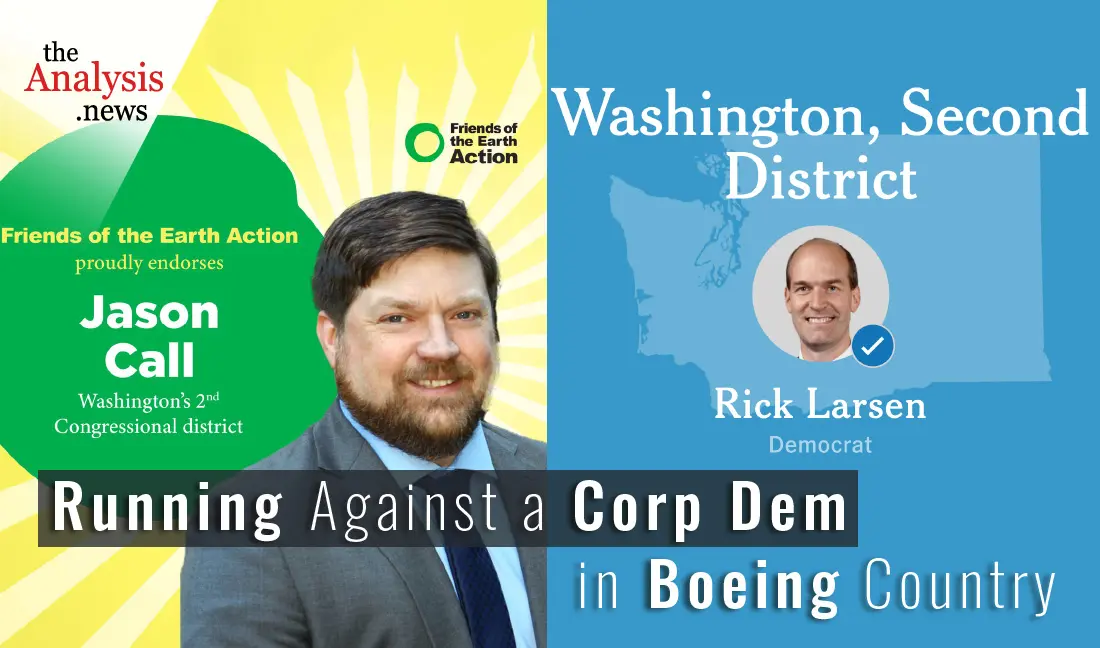
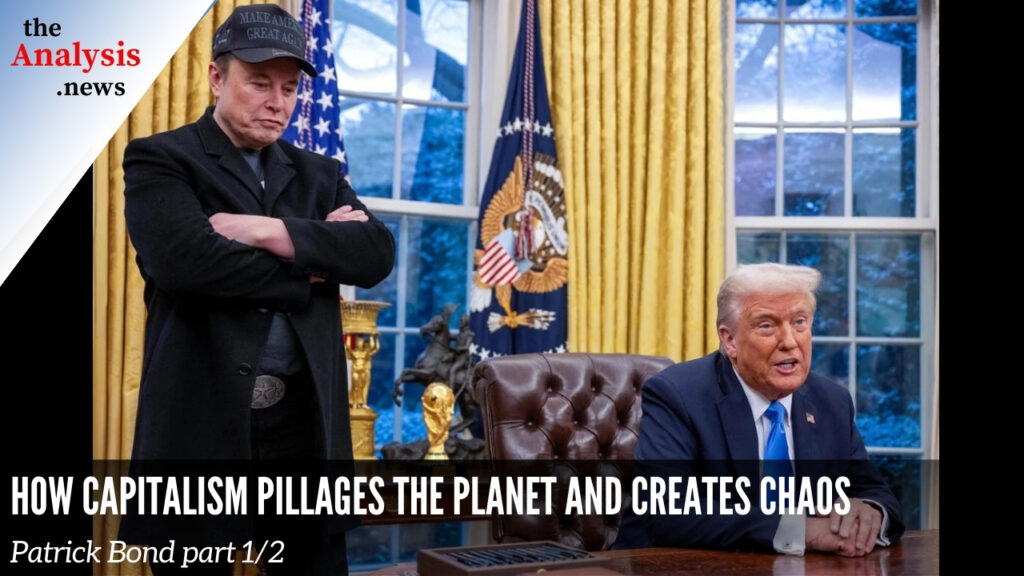






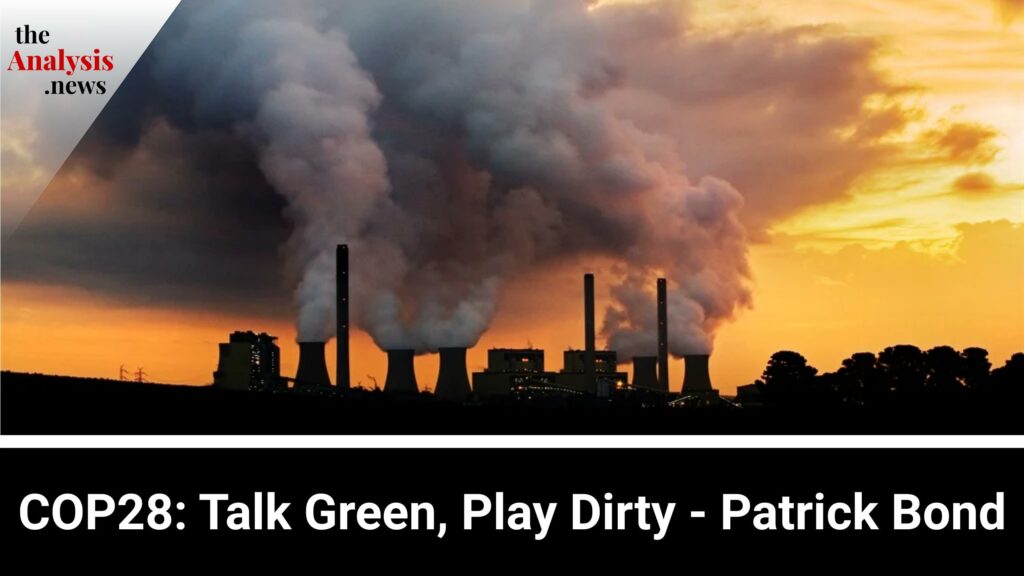
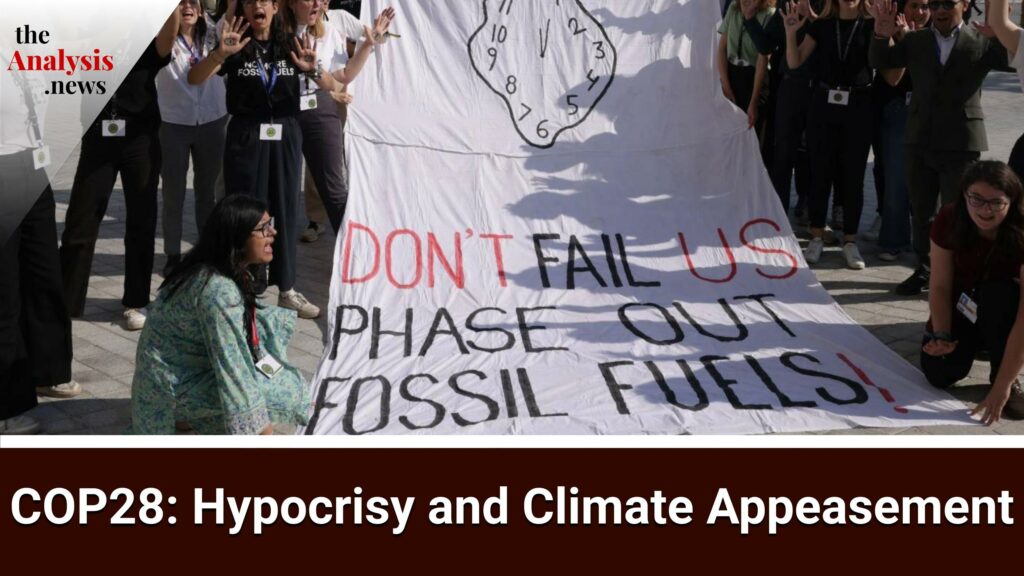

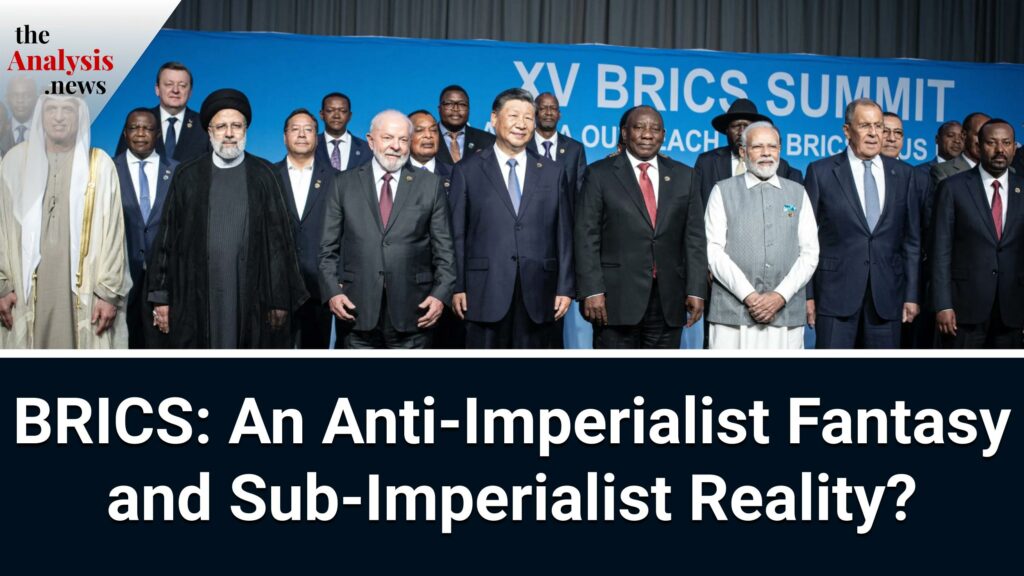

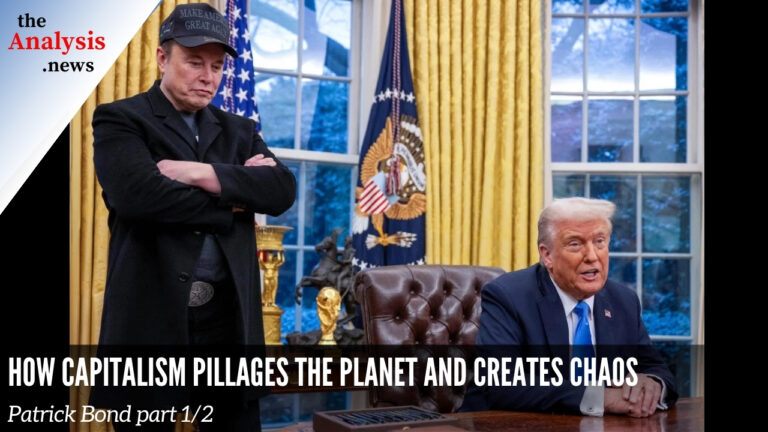
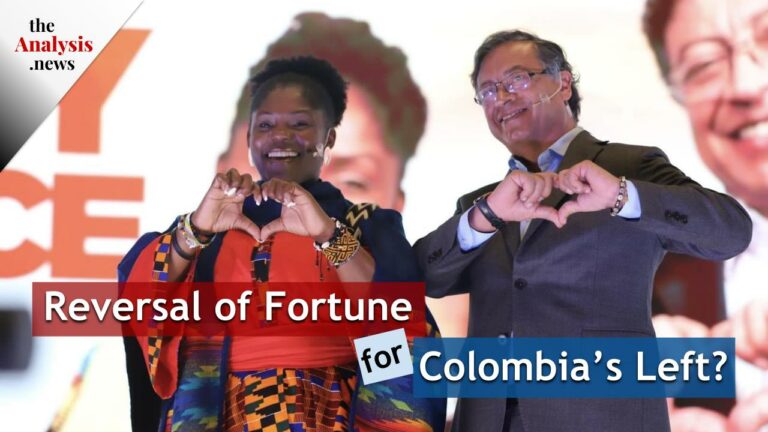


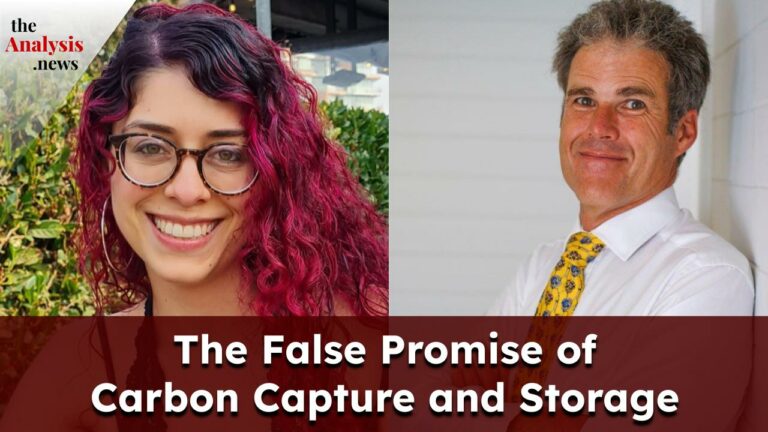

Good luck, Jason Call! Call out the corporations that were given all the rights of humans in Santa Clara County v. Southern Pacific Railway! End the Supreme Court’s presumptive right of judicial review since Marbury v. Madison! Perform these miracles, and one more: save us from the greenhouse and the bomb!
As a union member since 1997 and a climate change educator since 1999, I strongly support Jason Call’s campaign for U.S. House of Representatives. Humanity and the planet that sustains our lives can no longer suffer with the old paradigm, the false choice, of “jobs vs. environment”. We need a Green New Deal. We need “Just Transition” programs across the U.S. and there is a huge opportunity for good new jobs there – if only we had the political will. I’ve been pushing for Just Transition programs, letting people know what that means, since I first learned about it as a Trade Union delegate to the U.N. Commission on Sustainable Development in 1998. That was over 20 years ago. More people understand what “Just Transition” means now, but it’s still on relatively few people’s radar and the need for these programs hasn’t yet been acknowledged by the federal government under either dominant political party. What Jason said about the U.S. military being one of the largest emitters of CO2 is extremely important. I appreciate the efforts of the Veterans for Peace Climate Crisis & Militarism Project to educate the public on this. To learn about Just Transition, I recommend visiting climatejusticealliance.org/just-transition.